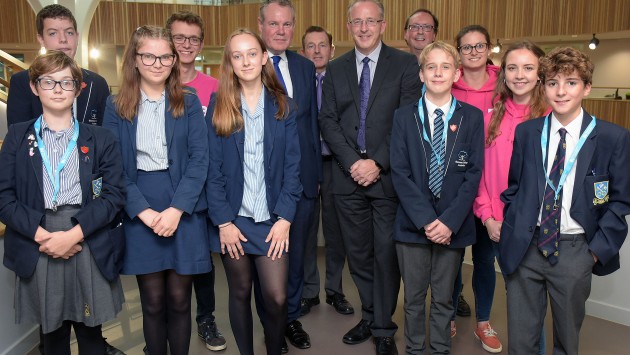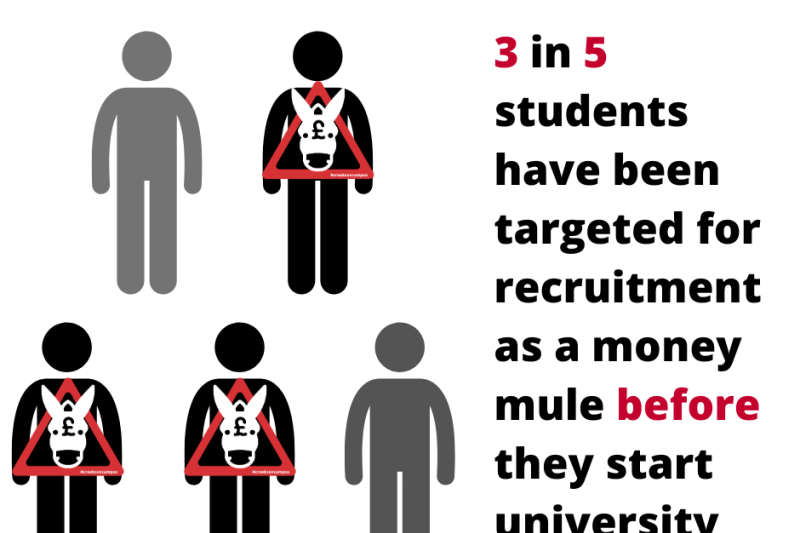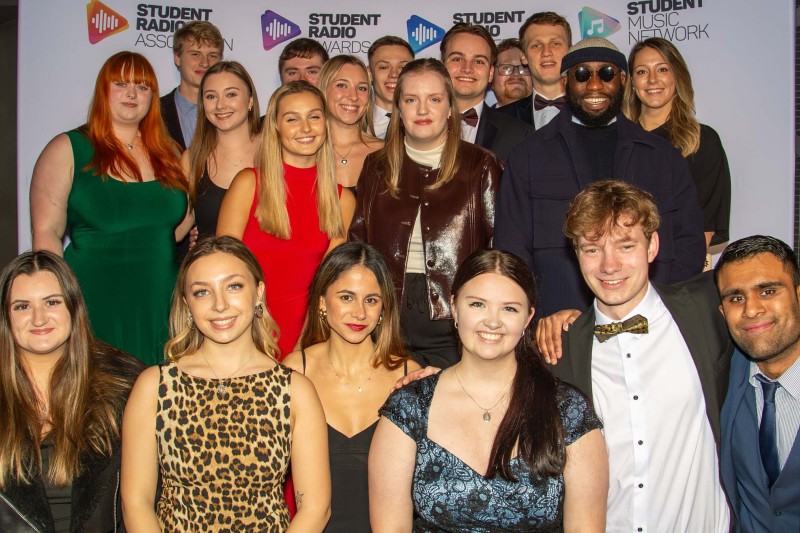The challenge, led by Conor Burns, MP for Bournemouth West, saw 13 schools invited to participate at Bournemouth University (BU), with a focus on design, engineering, science, technology and digital entries. The Challenge tasks the pupils to consider the UK’s future needs within one of the below four areas of the Government’s Industrial Strategy and innovate a solution.
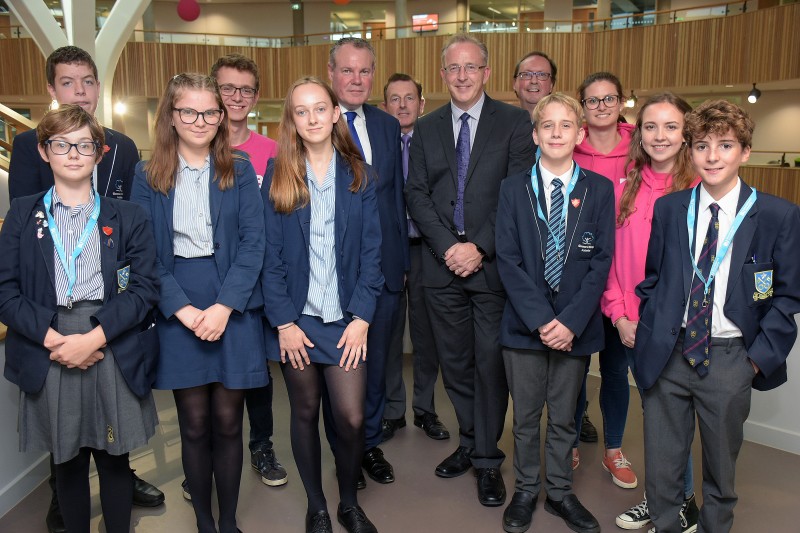
The role of robots and AI, as well as goods transportation, growth of creative industries and sustainability, are among the themes being explored by students, who will then, if successful in their proposal, pitch ideas to the Government in a wide-ranging and broadly interpretive exercise.
Proposals will be worked up in January, with a judging ceremony to find the successful school being held at BU and presided over by BU Vice Chancellor Professor John Vinney, Conor Burns MP and BU staff. Creativity has been encouraged in pitching and can be in the form of a product, prototype, presentation, sales pitch, or performative piece. The winning team will then tour Parliament before an award presentation by Greg Clark MP, Secretary of State for Business, Energy and Industrial Strategy in February.
Bournemouth School for Girls student, Katie John, said: “Firstly, we decided to think about what kind of issues we could think about to spur on some new ideas – rubbish, time management, travel, and food waste. We focused especially on waste and how we can minimise this, make everything more recyclable and how to minimise packaging.
Head of Science at Glenmoor & Winton Academies, Charlotte Whittick, said: “We’ve got a great team and we’ve taken lots of advice from lots of different teachers too – they’ve put forward their best students with the most creative ideas, and our team have had a number of different ideas.
“They’ve been looking at lots of different areas such as medical research, resources to other countries and transport. This is a great opportunity for the students to see what goes on in a university, to get the experience of working with other students, and pitching their ideas outside of the classroom.”
Alistair Brien, Headteacher at Bournemouth School for Girls, said: “We’ve an excellent team of year ten students and for us it’s really important to be involved in this sort of thing to show our commitment to not just being academic, but producing the engineers of the future. This is an issue that’s very important to them and the beauty of getting young people involved is that they aren’t limited by “it can’t be done”.
BU Vice Chancellor Professor John Vinney said: “We’re very proud of our links with schools and colleges in the region. It’s great to be involved in an event that looks at the broader national challenge around industrial strategy and the opportunities it presents for the younger generation to get involved and help find some of the solutions that we need as a country.”
He added: “It’s all about creativity and innovation and that’s what society and the economy needs – new ideas, fresh thinking and good engineering solutions.”
Speaking about some of the questions posed to him by pupils, Conor Burns MP said: “I always enjoy spending time in the company of young people, so I love coming to the university, because the energy, the sharpness and the focus on the future that they demonstrate is wonderful. Young people have a bad reputation in society, but every time that I meet them I am reassured of our future. These were incisive, difficult and challenging questions about the future of our country and the range of environmental, social and commercial ways.”
Students then took part in teamwork activities, with an animation show reel by Director of BU’s VFX Hub, Peter Truckel, and a robotics and programming workshop led by BU’s Outreach Team.
To read more about BU’s outreach activities, visit: https://www1.bournemouth.ac.uk/collaborate/teachers-advisers/our-work-ages-11-16
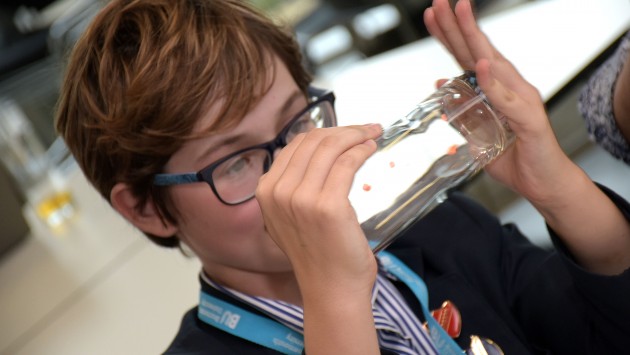
Schools Industrial Strategy
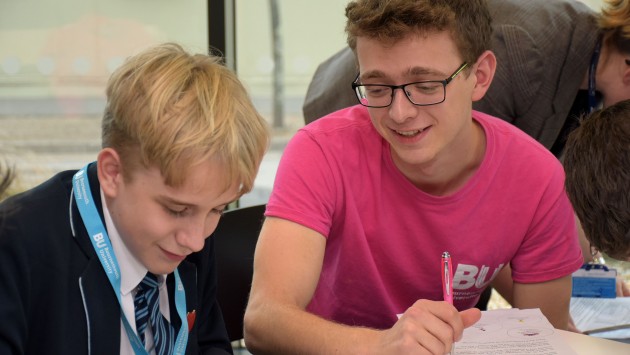
BU Outreach Team
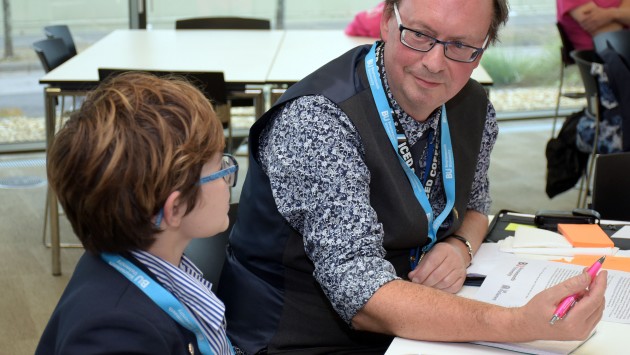
Industrial Strategy Creative Challenge.
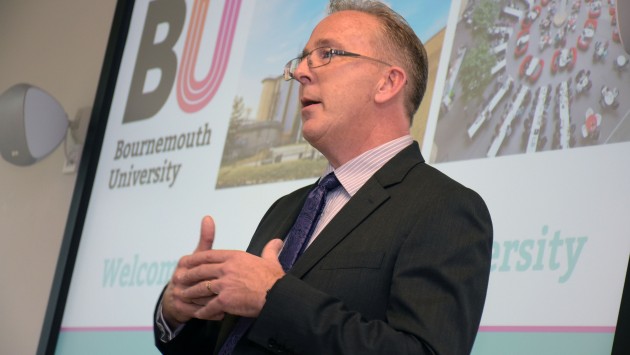
John Vinney at SISCC
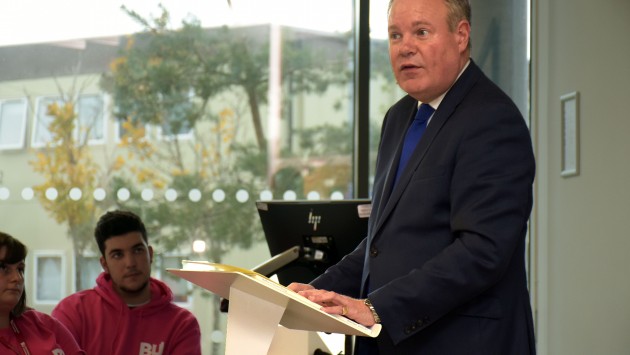
Conor Burns at SISCC.
